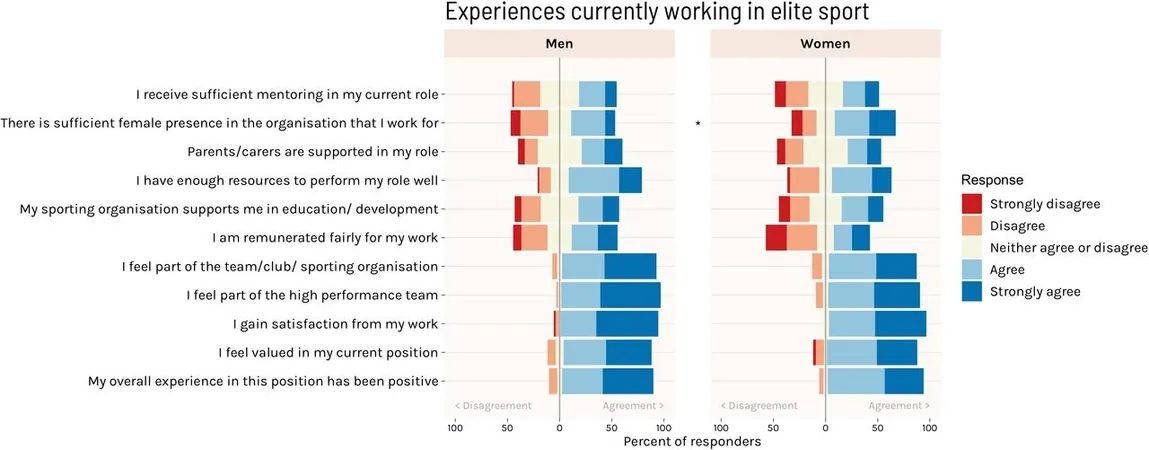
Revolutionary Advances in Brain-Computer Interface Technology Unveiled at Neuroscience 2024 Conference
2024-10-07
Author: Daniel
CHICAGO, Oct. 07, 2024 – At the highly anticipated Society for Neuroscience (SfN) Neuroscience 2024 conference, researchers introduced remarkable findings from their collaboration with Precision Neuroscience Corporation, a frontrunner in the development of brain-computer interface (BCI) technologies. These innovative results promise to usher in a new era of understanding neural functions, unlocking the potential for transformative treatments.
The landmark study, led by Dr. Iahn Cajigas of Penn Medicine’s Research Engineering Strategies To Recovery (RESToRe) laboratory, showcased the use of Precision’s advanced Layer 7 Cortical Interface. This state-of-the-art device, known for its minimal invasiveness and high-density array of electrodes, offers unparalleled access to the brain’s motor cortex. Through this technology, researchers were able to observe intricate neural patterns that were previously beyond reach, specifically focusing on beta oscillations—the rhythmic brainwaves that play a pivotal role in movement control.
“One of the most exciting aspects of our findings is the detailed view we now have of how the brain orchestrates movement,” Dr. Cajigas expressed. “This research lays the groundwork for groundbreaking advancements in BCI technology that could dramatically enhance the quality of life for patients facing mobility challenges post-injury or illness.”
During the experiment, carried out on a patient undergoing Deep Brain Stimulation (DBS) for essential tremor, the Layer 7 device—with its impressive count of 1,024 electrodes—enabled real-time monitoring of neural activities as the subject performed hand gestures. This novel approach provided insights into the spatiotemporal dynamics of beta waves, revealing how these oscillations behave under different conditions. Interestingly, the beta waves exhibited unique spiraling patterns at rest and transformed in response to movement, showcasing the brain’s adaptive mechanisms during motor tasks.
The implications of this research extend far beyond academic interest. Dr. Ben Rapoport, Chief Science Officer at Precision, emphasized the potential impact on those with serious neurological conditions: “Our mission is to create technology that empowers individuals to regain connection with their environments. Imagine controlling a robotic limb merely by thinking about it. This is not just a dream; it’s the direction we are heading towards.”
With ongoing collaborations involving esteemed institutions such as West Virginia University and Mount Sinai Health System, Precision is dedicated to pushing the boundaries of what is possible in BCI technology. As they prepare to announce more partnerships, the future of neurological treatment appears promising and full of potential.
Stay tuned for updates as Precision continues to lead the way in connecting human intelligence to advanced AI systems, thus enhancing our understanding of the brain and opening doors to innovative therapies for millions around the globe.



 Brasil (PT)
Brasil (PT)
 Canada (EN)
Canada (EN)
 Chile (ES)
Chile (ES)
 España (ES)
España (ES)
 France (FR)
France (FR)
 Hong Kong (EN)
Hong Kong (EN)
 Italia (IT)
Italia (IT)
 日本 (JA)
日本 (JA)
 Magyarország (HU)
Magyarország (HU)
 Norge (NO)
Norge (NO)
 Polska (PL)
Polska (PL)
 Schweiz (DE)
Schweiz (DE)
 Singapore (EN)
Singapore (EN)
 Sverige (SV)
Sverige (SV)
 Suomi (FI)
Suomi (FI)
 Türkiye (TR)
Türkiye (TR)